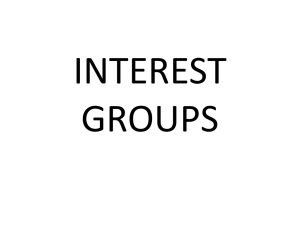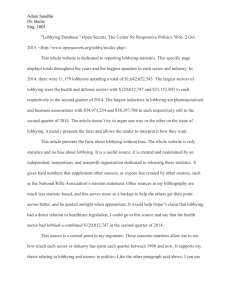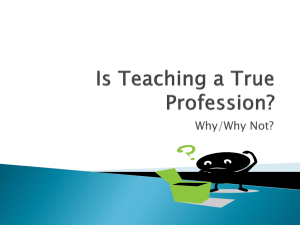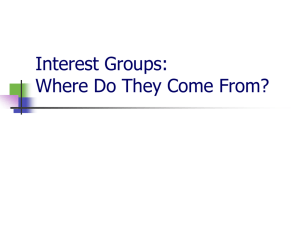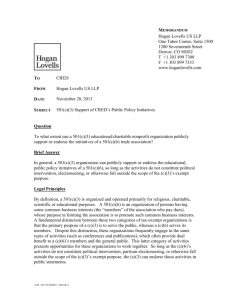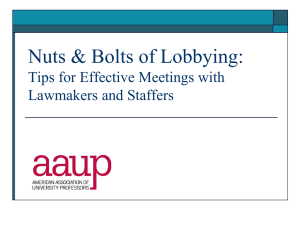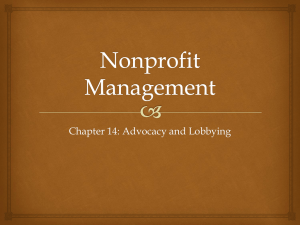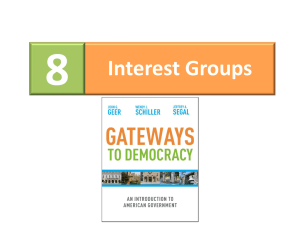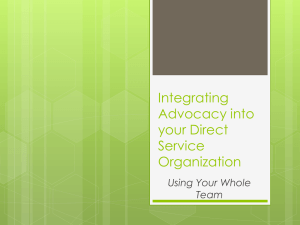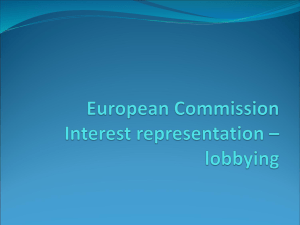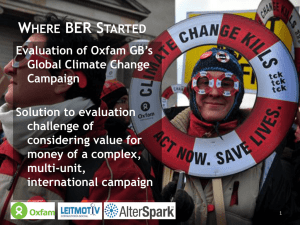Session III
advertisement
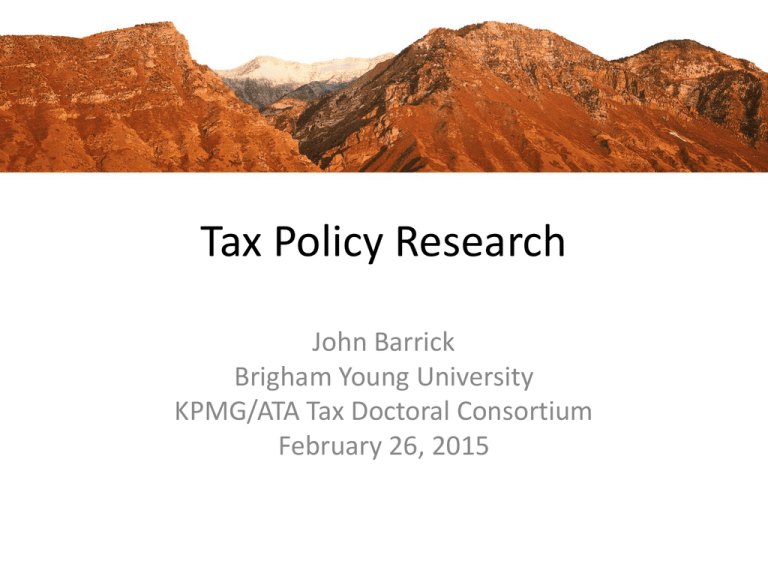
Tax Policy Research John Barrick Brigham Young University KPMG/ATA Tax Doctoral Consortium February 26, 2015 Leave of Absence • Two years on the policy staff at the Joint Committee on Taxation – Jim Wheeler, George Plesko, Lil Mills, Pete Lisowsky, John Robinson • Tax is law, and law is politics • Tax policy community is quite small and close • Try to let my Hill experience guide my research Goal of Tax Planning • Minimize after-tax cash flows • Can be accomplished in two primary ways: – Tax planning • Timing of income and deductions • Shifting income between taxpayers and jurisdictions • Conversion – Tax policy • Raise revenue, encourage activities deemed to be in the public interest, redistribute wealth (Scholes and Wolfson 1992) • Active financing, cost recovery, repatriation, black liquor Tax Lobbying “Ways and Means stands at the vortex of two worlds. One is the world of government and its awesome power of taxation; the second is the business world, in which the whims of Ways and Means can mean the saving—or losing—of millions, even billions, of dollars a year.” Birnbaum and Murray, 1987 Tax Lobbying and Corporate Political Activity: How Do Firms Seek Tax Relief? Barrick and Alexander (2014) • What are the tax lobbying strategies that a firm may use? • A lot of tax research examining lobbying and taxes is being done, but a complete picture of tax lobbying is yet to emerge. • We conduct a descriptive field study with policy makers and corporate, contract, and trade association lobbyists. Barrick and Alexander (2014) • Tax lobbying largely uses a relational because of the Ways & Means and Senate Finance Committees. • Individual, collective, and hybrid participation strategies are used. • Informational and financial specific strategies are used to influence tax policy. • Taxes are used to accomplish many policy goals because it both authorizes and appropriates in a single bill. • Offensive versus defensive lobbying. • Tax extenders are an important subset and drive year to year tax legislation. Corporate Taxes and Lobbing: Getting a Seat at the Table. Barrick and Frischmann (2014) • What are the relative roles of individual versus collective tax lobbying? • The research examining lobbying and taxes primarily considers only the individual participation strategy. • We hand collect trade association disclosures to examine the relative effect of lobbying expenditures. Barrick and Frischmann (2014) • Trade associations provide constituency and cover to firms when engaging in corporate political activity. • The use of a hybrid-participation tax lobbying strategy reduces a firm’s effective tax rate. • What does disclosure proxy for? Future Research • What is the role of trade associations? • What are the antecedents of choosing to lobby individually, collectively, or using a hybrid-participation strategy? • Lobbying benefits are often non-excludable, does that encourage free riders? • Given the returns on lobbying, why don’t more firms participate? Influencing Policy Makers • Be active in professional associations – ABA Tax Section, AICPA • Publish in outlets policy makers read – Tax Notes • Write comment letters • Testimony • Visit policy makers, be prepared – Way and Means, Finance, Joint Tax, Office of Tax Policy

